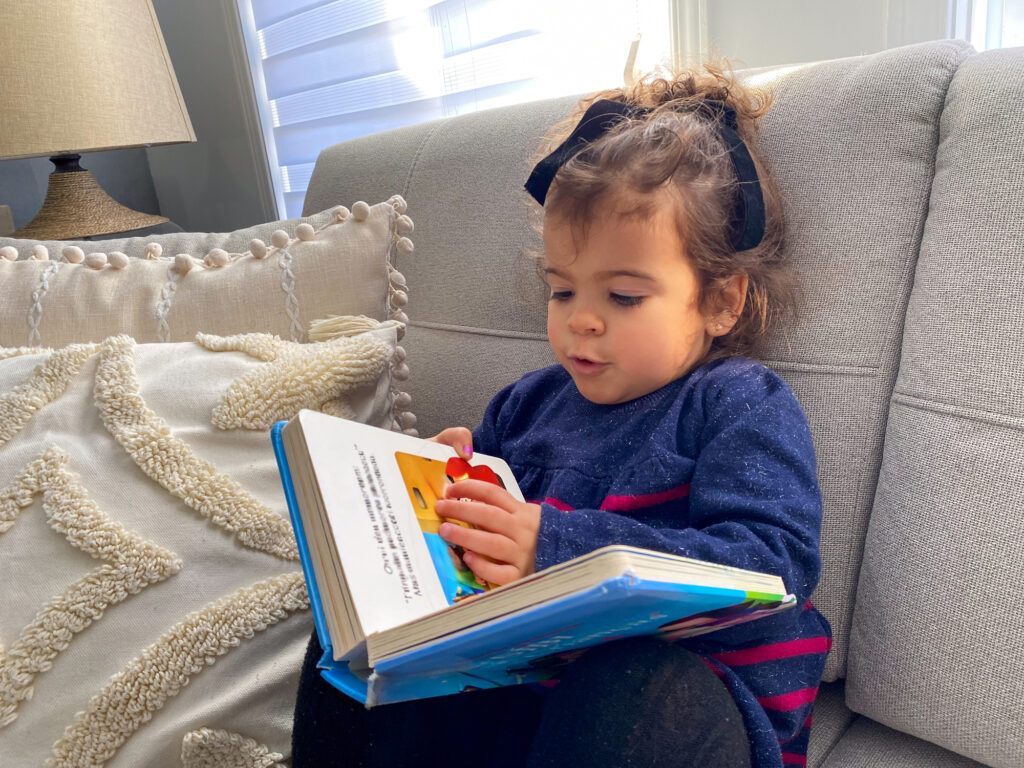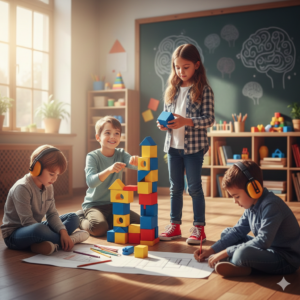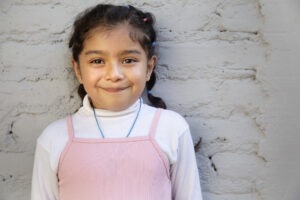It’s natural for parents to compare toddlers and notice differences. At age 2, some children are busy stacking blocks and pretending to feed dolls, while others seem less interested in toys, words, or problem-solving. If your child seems behind in these areas, you may wonder whether it’s just a slower pace – or something called cognitive developmental delay.
Not every lag is a sign of a long-term problem, but knowing what’s typical, what’s concerning, and what can cause a delay helps parents make informed decisions.
What Does Cognitive Delay Mean at Age 2?
Developmental delay describes when a child isn’t meeting skills expected for their age. For a 2-year-old, delays often appear in areas like:
- Thinking and learning: difficulty solving simple problems or remembering routines
- Language: not using basic words or following one-step instructions
- Play skills: little or no interest in toys, pretend play, or imitating adults
Children grow at different rates, so a small lag doesn’t always equal a long-term issue. But when multiple areas – especially cognitive skills – are consistently behind, further evaluation may be recommended.
Causes of Cognitive Developmental Delay
There isn’t a single cause. A variety of factors can play a role:
- Genetic conditions such as Down syndrome or Fragile X syndrome
- Birth complications like prematurity or oxygen loss
- Environmental factors, including lead exposure, chronic malnutrition, or low stimulation
- Neurodevelopmental conditions such as autism spectrum disorder
👉 Want to explore genetics further? See: Are Autism and Cognitive Delay Genetically Linked in Toddlers?
When to Seek Support
The American Academy of Pediatrics (AAP) recommends if a toddler misses several milestones or loses skills they once had.
For a 2-year-old, red flags may include:
- Not using at least 50 words or not combining two words
- Difficulty following simple instructions
- No pretend play (like pretending to cook or feed a toy)
- Little curiosity or exploration of new activities
If you notice these signs, don’t assume your child will “catch up later.” Early intervention can make a significant difference in learning, behavior, and school readiness.
How FDNA Helps Parents and Professionals
FDNA’s Family Health Checker is a free tool that helps parents organize concerns, track developmental progress, and prepare for a pediatric visit. The structured report makes it easier for doctors to decide if a referral or further testing is needed.
All results are non-diagnostic and should always be confirmed by a healthcare professional – but tools like this support the AAP’s recommendations for timely screening and referral. All outputs are non-diagnostic and must be validated through clinical evaluation and appropriate testing.
Global Developmental Delay and Its Connection
Sometimes delays are not limited to one skill area. Global Developmental Delay (GDD) is diagnosed in children under 5 who show significant lags in two or more areas of development (motor, language, social, and cognitive).
For example, if a 2-year-old struggles with both learning new ideas (cognitive) and using words (language), this may suggest GDD rather than an isolated cognitive delay. Recognizing this overlap helps professionals decide whether broader testing is needed.
If you’re unsure what to do after recognizing possible delays, see the next steps for parents of 2-year-olds with cognitive delay.
FAQs
- What is a cognitive developmental delay?
It means a child is slower than expected in learning, problem-solving, memory, or play compared to peers of the same age.
2. What are the signs of cognitive delay?
Trouble with cause-and-effect play, difficulty following instructions, lack of pretend play, or slow language development.
3. When is a child considered developmentally delayed?
When they consistently fall behind age-appropriate milestones across one or more skill areas. For children under 5, multiple lags may be diagnosed as global developmental delay.
4. What do cognitive delays look like?
They may look like a toddler not recognizing familiar routines, struggling with puzzles, not pointing to objects, or showing little curiosity about the world.
Conclusion
If you’re concerned about your 2-year-old’s learning or play skills, remember you’re not alone. Many parents face the same questions. Some children simply need more time, but others benefit greatly from early support.
Seeking guidance doesn’t mean labeling your child – it means giving them every opportunity to thrive. With observation, professional input, and tools like FDNA’s Family Health Checker, you can take proactive steps toward clarity and reassurance.



